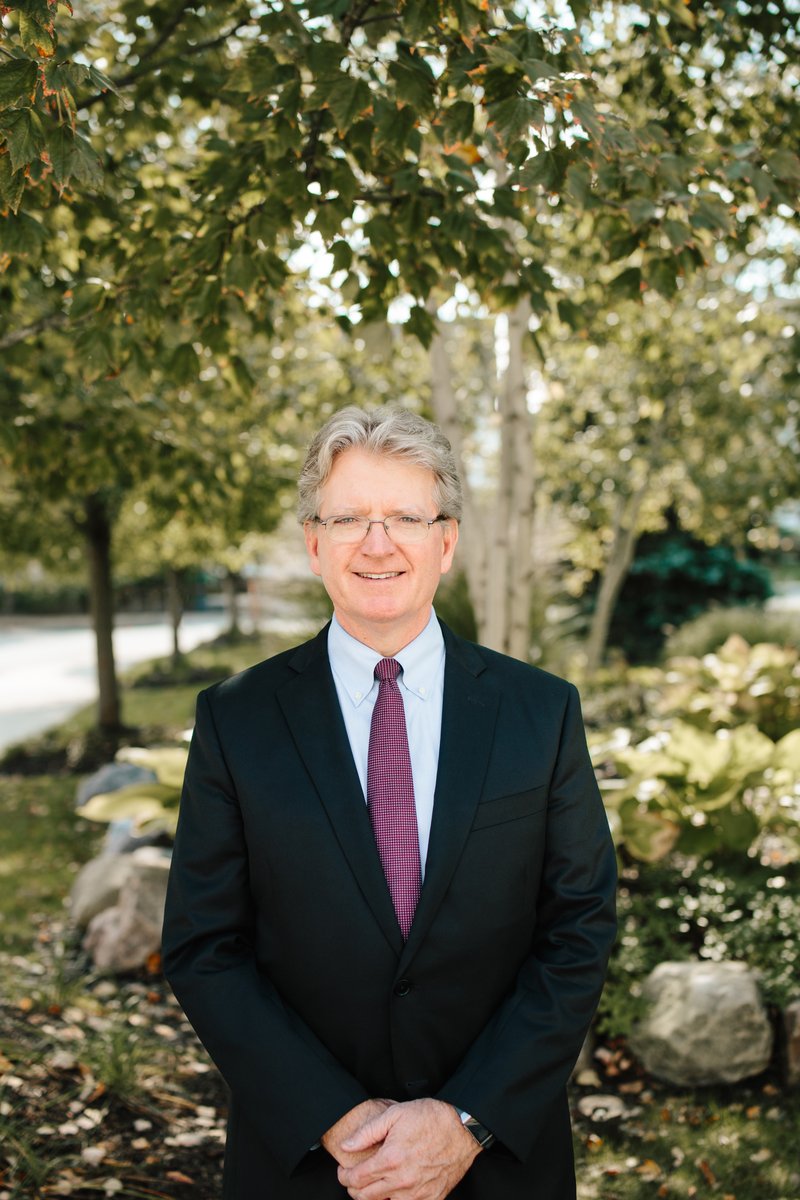living well-thy
not your father's retirement: succession planning 101
Why become a financial advisor?
For many people, the answer is simple: to make a difference in people’s lives.
As Managing Director and Partner at Hightower Great Lakes, Tim Scannell embodies this every day while making a difference in the lives of nearly 100 families.
“When I started a certified financial planning program, I just wanted to have a positive effect on people’s futures,” says Tim. A former accountant, Tim was intrigued by the idea of forethought. With financial planning, Tim says, he could help people prepare for their futures, rather than simply account for the past.
Tim’s commitment to his clients has been a feature of his career, and it was one of the reasons he joined Hightower as the firm’s second financial advisor. “I came to the conclusion that to remain client-focused, I really needed to partner with a larger, fiduciary-minded organization,” he explains. “That way, I could focus on working with and planning for clients.”
Nearly 12 years later, Tim is still a proud, fiduciary-focused member of the Hightower team, and he’s still laser-focused on helping his clients plan for their best possible personal and financial futures.
TIM SCANNELL
managing Director and Partner, Hightower great lakes

“What being a fiduciary means as it relates to well-th rebalanced is that we’re finding out what matters to [clients], what their values are, what their goals are, what their vision is, where they want to go with their business and their family."
SPONSORED CONTENT
every generation faces its share of challenges
Each generation faces challenges that often appear both unique and overwhelming, but when viewed through the sobering lens of history, we find they are neither. Today we face any number of challenges which, while significant, are arugably no more daunting than:
- A global depression
- Two world wars
- The Cold War
- The assassination of one president and the resignation of another
- 9/11
And yet the market has continued its inexorable climb. Why? In our view, and despite of our shortcomings, humans are remarkably resilient, and masterful inventors and innovators, often striving to make a better place for themselves, their families and their societies.
Invesco Distributors, Inc.
Not a Deposit - Not FDIC Insured - Not Guaranteed by the Bank - May Lose Value -Not Insured by any Federal Government Agency
Invesco Blog:
Market gyrations can make investors want to run, but history shows stocks’ ability to overcome these concerns:
Learn more from Invesco’s Global Market Strategist, Brian Levitt.
Working With Entrepreneurs
Tim’s personal approach to financial planning resonates well with his favorite client demographic: entrepreneurs.
“I think entrepreneurs are the heroes of the world,” he says. “They’re the ones who are the job creators. I’ve always been kind of magnetically attracted to working with them. They’re risk-takers and decision-makers — especially now, more than ever, because of COVID. They’re the ones making a difference.”
Tim has found that entrepreneurs are often so focused on serving their clients and employees that they rarely want to exit their businesses.
“Very few of them actually want to retire,” he says. “The word ‘retirement’ is really not something they’re attracted
to, because retirement means they’re kind of out of the game. And these are really difference-makers. They like to be in the action; they like to be job-creators.”
How does Tim help his clients view retirement in a more positive light? He helps them shift their outlook, so they’re heading toward what he calls ‘work optional.’
“If I can put them on a path where they understand they can exit if they need to or want to, or that they can scale back, it gives them a level of comfort so they can continue to take risks every day.”
Tim’s natural gravitation toward entrepreneurs affects his business model. He views himself as a guide, helping to navigate stressful situations and tough decisions.
“When my clients are thinking about new projects, they call us,” he says. “Our financial advice is intertwined with business [advice]. I can’t do it all, but I try to bring in the professionals to help when clients need them.”
For example, when a client opens a new practice or storefront in a new location, Tim engages deeply throughout the process. He’ll assist with securing any necessary building loans, make introductions to contractors, and collaborate with the client’s accountants, attorneys, and insurance professionals.
That collaborative approach to advising continues as clients approach the ‘work optional’ phase of their careers.
“A proper succession plan may take 10 years, because if you have to recruit and train and hire the right people,” Tim explains. “You need the processes in place. A business has to operate without the key person in order to be of value to anybody who wants to buy it. A lot of business owners try to do everything.”
As a guide, Tim helps business owners prepare the business so they can exit when they want to — and that takes time and trust.
Fiduciary First
Personal Relationships
Client trust is important to Tim — and it was the deciding factor in his choice to join Hightower back in 2008.
“I think people don’t necessarily understand what a fiduciary really is,” he explains. “At Hightower, we choose to operate as fiduciaries. So that means that I’m required by law to put the best interests of the client first.” Serving as a fiduciary in that capacity is the result of deep relationships and incredibly personalized plans.
“We do so much more in-depth discovery of goals and assumptions and risk tolerance,” says Tim. “We’re diving into their businesses. We’re really making — and we’re required by law because we choose to do this — decisions and recommendations that are specifically for the clients and with their best interests in mind.”
Focusing on clients’ best interests is key to Hightower’s “well-th rebalanced” philosophy — and to Tim’s.
“What being a fiduciary means as it relates to well-th rebalanced is that we’re finding out what matters to [clients], what their values are, what their goals are, what their vision is, where they want to go with their business and their family," Tim says. "We want to know what their hobbies are, what their personal charities are. We want to know a lot about their lifestyle. We want to know what other advisors they’re working with…[so] we can help collaborate with other team members.” The concept of well-th rebalanced is deeply natural to advisors like Tim, who already view the personal and the financial as inextricably intertwined.
Ultimately, he says, this approach allows clients and advisors to ensure they have the right personal fit before they move forward with financial planning.
“In the long run, we’re looking for relationships,” he says. “We’re not looking for transactions.”
Many of the 200-plus financial advisors who are part of the Hightower community feel the same way. Regardless of client type, each advisor shares the same end goal: to help each of our clients reach their own personal definition of well-th.
To find out more about the Hightower Community,
visit our website.
What business owners should think about moving toward retirement, from Tim Scannell:
01.
Work with a Fiduciary
Any advisor you choose should be a fiduciary, who places your interests above all else. Your welfare is the number one priority and the guiding force behind every action and recommendation Hightower advisors make.
02.
Make “Work Optional”
As a business owner, you focus your time and energy on serving your clients and employees while managing a litany of daily risks and challenges. A financial advisor can help you uncover new approaches and possibilities to make work optional.
03.
Find Your Value Drivers
Have you ever wondered why one business attracts multiple buyers willing to pay top dollar, while another sits on the market for months or years? Buyers seek value drivers: those characteristics of a business that either reduce the risk associated with owning the business or enhance the prospect of significant growth. To receive a premium price, think about value drivers daily.
04.
Take Control
Leaving your business is inevitable — leaving it on your own terms is not.
05.
Form a Team “Owner”
You might have a good internal team running the business. Do you have a personal A-team advocating for you? Create a team of professionals who collaborate to work for you and stress test your plans annually with all of your trusted advisors on the same page.





